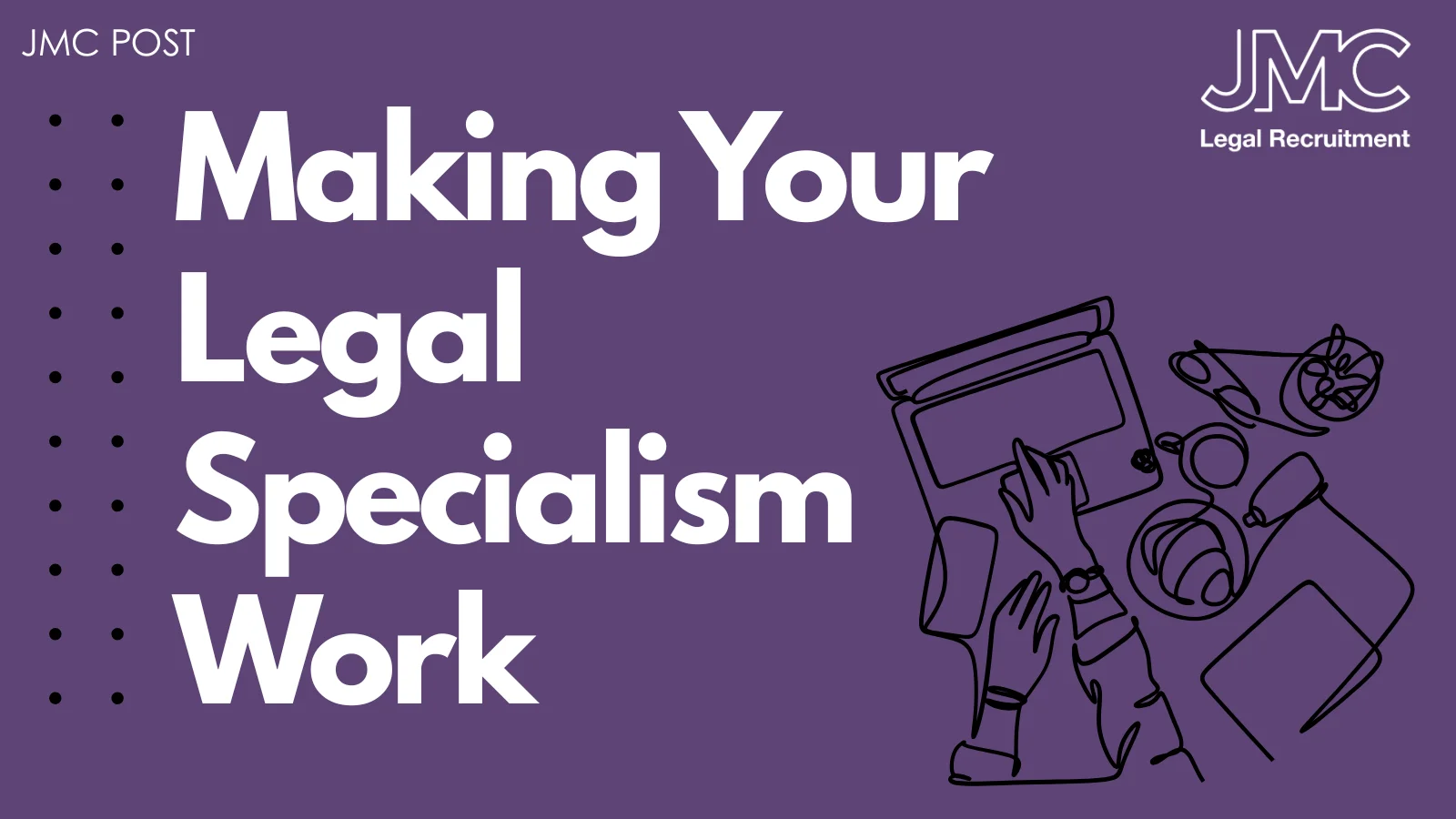
Mental Health in the Legal Profession: What Firms Can Do
16 Jan, 20268 minutes
Mental Health in the Legal Profession: What Firms Can Do
The silent struggle: Wellbeing for lawyers
The legal profession, while prestigious and intellectually rewarding, is also notorious for its high-stress environment. Lawyers are often under immense pressure to perform at their best, making critical decisions that impact their clients' lives. However, this pursuit of excellence comes at a significant cost to mental health and overall wellbeing in the workplace.
The staggering statistics on wellbeing for lawyers
Recent studies by Clio “Legal Trends for Mid-Sized Law Firms Report 2024” reveal a troubling landscape:
- 83% of lawyers report feeling stressed regularly.
- 15% of solicitors work more than 60 hours per week.
- 71% of lawyers experience anxiety.
- 28% of solicitors have experienced depression.
These figures highlight a pervasive issue that demands immediate attention to address wellbeing in the workplace.
Understanding the pressure
Solicitors high-stakes responsibilities—defending clients, managing complex cases, and meeting billable hour targets—create an environment where stress and anxiety are almost unavoidable. The pandemic further blurred the lines between work and personal life, leading to an increase in burnout and mental health issues.
1. Client expectations:
Solicitors often handle cases that can significantly impact their clients' lives. These include defending against criminal charges, securing custody of children, or managing high-stakes corporate deals. Clients expect their lawyers to be not just competent, but also empathetic and available at all times.
With the world we live in now, clients and people in general expect responses immediately. The weight of expectations can be overwhelming as solicitors strive to meet the needs of those relying on their expertise.
2. Billable hours:
One of the most quantifiable pressures comes from the requirement to meet billable hour targets. Many law firms set high expectations for billable hours, leading to solicitors working late and on weekends. The focus on billable hours often leaves little time for rest and recuperation. This contributes to a cycle of perpetual exhaustion and career burnout.
3. Competitive environment:
The legal field is highly competitive. From securing a place in a reputable firm to climbing the corporate ladder, solicitors are constantly proving their worth. This competition extends to maintaining and growing a client base. The pressure to deliver exceptional results leads to working under intense scrutiny.
4. Emotional toll:
Handling emotionally charged cases, such as family law or criminal defence, can take a significant emotional toll on solicitors. The need to remain detached and professional while empathising with clients can lead to compassion fatigue and burnout.
5. Constant learning:
The law is ever-evolving, and solicitors must stay abreast of changes in legislation, case law, and industry practices. This requires continuous learning and professional development, adding another layer of pressure to an already demanding role.
6. Isolation:
Despite often working in large firms, solicitors can experience isolation. Long hours and intense focus leads to a sense of disconnect from colleagues, friends, and family, exacerbating feelings of stress and anxiety.
7. High stakes:
Every decision a solicitor makes can have far-reaching consequences. The responsibility of making the right call, often under tight deadlines, can be incredibly stressful. The fear of making mistakes or facing professional liability adds to this pressure.
8. Work-life balance:
Maintaining a work-life balance is notoriously challenging for solicitors. The demanding nature of the job often blurs the line between personal and professional life. Long working hours encroach on time spent with family or on personal interests.
Recognising the signs of poor mental health
Law firms must be vigilant and proactive in identifying signs of mental health struggles among their staff. Key indicators include:
- Burnout: Lawyers may appear exhausted, disengaged, or less productive. Lawyer burnout can lead to decreased performance and increased turnover.
- Anxiety and stress: Signs include irritability, withdrawal, or changes in behaviour. High levels of stress can impair decision-making and client interactions.
- Changes in workflow and performance: If the performance of an individual changes, don’t instantly assume their work ethic is dropping or they’re looking to leave. Consider that the individual might be struggling with matters relating to their mental health,
A personal journey: My battle with career burnout and psychosis
As the CEO of JMC Legal Recruitment, I've experienced first hand the devastating effects of neglecting mental health. Early in my career, I pushed myself relentlessly, driven by an insatiable desire to achieve more. The recruitment industry, like legal, is notorious for the relentless pursuit of billings. This unyielding ambition, coupled with the high demands of the recruitment industry, led me down a dark path.
I vividly remember the turning point. After months of ignoring the warning signs—chronic fatigue, irritability, and a sense of being perpetually overwhelmed—I found myself in the throes of psychosis. My mind, once sharp and focused, became a battlefield of confusion and fear. The very drive that fuelled my success had also become my undoing.
It took hitting rock bottom for me to realise the importance of mental health. Through professional help, support from loved ones, and revaluating my work-life balance, I began the journey to recovery. Today, I'm sharing my story to help others avoid the same fate.
Proactive measures for firms
Creating a healthy work culture is a necessity for a happy, healthy, and productive workforce. Supporting mental health at work and promoting wellbeing for lawyers starts with leadership commitment.
Discussions about mental health should be as routine as discussing a physical ailment. Lets break the taboo that often surrounds the topic. Business leaders must pave the way, demonstrating openness and prioritising wellbeing.
A truly supportive firm also offers flexible working arrangements. Flexibility can help staff manage their workload more effectively. Being flexible boosts productivity and enhances overall job satisfaction.
Implementing mental health initiatives is another cornerstone of a healthy firm. Imagine having on-site counselling readily available, where solicitors can seek help without fear of judgment.
Mental health champions provide an alternative outlet for staff to discuss their concerns. This is especially helpful when staff might feel uncomfortable talking to their direct manager.
Establishing wellness programs promoting physical health has a profound impact, as physical wellbeing is linked to mental health.
Fostering open communication is vital. A culture where mental health discussions are normalised and free of stigma creates a supportive environment. Senior management can lead by example, sharing their own experiences and encouraging openness among all staff members.
Regular check-ins ensure that mental health remains a priority. Anonymous surveys and individual check-ins can help gauge the overall well-being of the team. Acting on feedback is crucial. If someone is struggling, managers should adjust their workload to prevent burnout.
Continuous improvement in mental health policies ensures that the firm remains responsive to the evolving needs of its staff. By staying informed about best practices, firms can continually enhance their approach to law firm mental health.
Practical tips for solicitors
Firms play a significant role in supporting mental health at work. However, solicitors can also take proactive steps to manage their own mental health:
- Set boundaries: Clearly define work hours and personal time to avoid burnout.
- Seek support: Utilise available mental health resources and don't hesitate to ask for help.
- Practice self-care: Engage in relaxing or wellbeing activities, such as exercise, being in nature, meditation, and hobbies.
- Connect with peers: Build a support network within the profession to share experiences and advice.
The Path Forward
Improving mental health in the legal profession is not just about addressing individual struggles. It's about creating a sustainable and supportive work environment. By prioritising mental wellbeing, law firms can enhance their overall productivity, reduce turnover and sickness. In turn, they build a healthier, more resilient workforce.
The legal community must recognise that mental health is as important as physical health. Firms that proactively support solicitors equip their most valuable assets, their people, to thrive.
Mental health struggles in the legal profession are real, but it is also addressable. By fostering a supportive culture, implementing comprehensive mental health initiatives, and encouraging open communication, law firms can make a significant impact. Solicitors, too, must take charge of their well-being, setting boundaries and seeking support when needed.
Ultimately, a healthier legal profession benefits everyone; solicitors, firms, and clients alike. The legal community must take mental health seriously. It's time to act decisively and create a better, more supportive environment for all. I write this not just as a CEO, but as someone who has walked the difficult path of burnout and psychosis. Let my journey be a testament to the importance of mental health and a call to action for all legal professionals to prioritise their wellbeing.
Find the Law Gazette Feature here: https://jobs.lawgazette.co.uk/article/breaking-the-silence-mental-health-in-the-legal-profession-a-call-to-action-for-solicitors-and-firms
Related articles:



